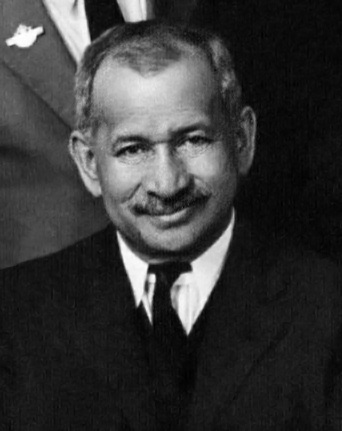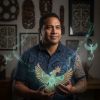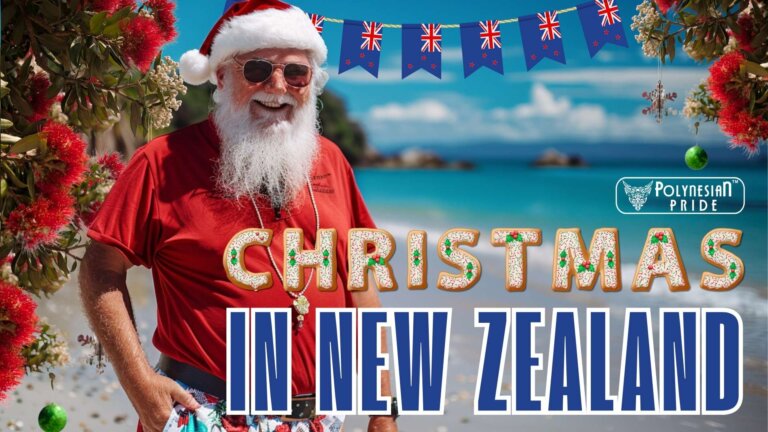Top 12 Famous Maori People: Influential Leaders & Icons

The famous Maori people of New Zealand have made remarkable contributions across various fields, including politics, arts, and sports. Their influence reaches beyond their community, shaping the cultural and social landscape of New Zealand. This article highlights some of the most notable Maori people names whose legacies continue to inspire.
Politics and Leadership
1. Sir Apirana Ngata (1874–1950)
One of the most famous Maori men in New Zealand’s history, Sir Apirana Ngata, was a transformative leader renowned for his commitment to Maori education, land reform, and cultural preservation. The first Māori to graduate from a New Zealand university with a law degree, Ngata entered Parliament in 1905 and served until 1943. During his six years as Minister of Māori Affairs, Ngata spearheaded initiatives for Māori land development, ensuring the survival of Māori cultural practices such as the haka, poi dancing, and traditional carving. He is also recognized for his role in founding the Young Māori Party, which aimed to improve the social and economic conditions of the Maori people.

2. Dame Whina Cooper (1895–1994)
A pivotal figure in Maori history, Dame Whina Cooper is celebrated for her advocacy for Maori land rights and women’s welfare. Born in Hokianga, she led the 1975 Māori Land March, a historic 1,100-kilometer journey that brought national attention to Māori land grievances. As the first president of the Māori Women’s Welfare League, Cooper worked to improve health, housing, and social conditions for Maori women and their families. Her legacy as one of the most influential Maori women in New Zealand is marked by her dedication to Maori rights and social justice.

3. Sir James Henare (1906–1989)
Sir James Henare was a Maori military leader and politician, celebrated for his role as the Commanding Officer of the 28th Māori Battalion during World War II. After the war, Henare became a respected diplomat and cultural leader, working to bridge the gap between Māori and Pākehā communities. He played a vital role in the kōhanga reo movement, which aimed to revive and preserve the Maori language. Knighted in 1978, Henare’s contributions to Maori leadership and bicultural understanding solidified his place among famous Maori men in New Zealand’s history.

4. Te Puea Hērangi (1883–1952)
Te Puea Hērangi, a granddaughter of the second Māori King, was a vital leader of the Kīngitanga movement, working to unify the Maori people and restore their mana (prestige). She opposed conscription during World War I and later helped establish the Tūrangawaewae Marae, the cultural and political center for the Tainui people. Her leadership in Maori land development and her alliance with Sir Apirana Ngata cemented her status as one of New Zealand’s most significant Maori women leaders.

Arts and Literature
5. Taika Waititi (1975–)
Among famous Maori men, Taika Waititi is an internationally acclaimed filmmaker, actor, and comedian. His films, such as “Hunt for the Wilderpeople” and “Thor: Ragnarok“, skillfully blend humor with profound cultural commentary, often reflecting on his Māori heritage. Waititi’s ability to incorporate Maori identity and themes into mainstream cinema has made him one of the most famous Maori people in the global art scene. His work entertains and educates audiences about Maori culture, positioning him as a Maori cultural icon in Hollywood.

6. Hone Tuwhare (1922–2008)
Hone Tuwhare is a leading figure in Maori literature, best known for his pioneering poetry. His 1964 “No Ordinary Sun” collection remains a cornerstone of New Zealand’s literary history. Tuwhare’s work often addresses political activism and environmental concerns, resonating with both Maori and Pākehā audiences. His poetry, rich in emotion and cultural heritage, continues to influence modern Maori literature, solidifying his status as one of the most famous Māori men in the arts.

7. Katerina Mataira (1932–2011)
Katerina Mataira was pivotal in revitalizing te reo Māori, working tirelessly to preserve and promote the Maori language. As an artist, writer, and educator, she played a leading role in the Kōhanga Reo movement, instrumental in teaching the Māori language to younger generations. Mataira’s contributions to Māori education and cultural preservation have made her a prominent name among notable Māori people in education and the arts.

8. Ngoi Pēwhairangi (1921–1985)
A prominent advocate for the Maori language and culture, Ngoi Pēwhairangi made significant contributions to Maori education and music. Her songs, including the iconic “E Ipo“, are still widely known across New Zealand. Pēwhairangi’s work in te reo Māori revitalization and her activism in preserving Māori traditions ensure her place among the most famous Maori women in New Zealand’s cultural history. Her dedication to keeping Māori music and language alive continues to inspire future generations.

9. Witi Ihimaera (1944–)
One of the most celebrated Maori authors, Witi Ihimaera, is known for his works that explore Maori identity, history, and culture. His novel, “The Whale Rider“, is internationally acclaimed and has been adapted into a successful film, bringing Maori culture to a global audience. Ihimaera’s literary achievements have earned him international recognition and cemented his position as a key figure among famous Maori people in New Zealand literature.

10. Dr. Rangi Matamua
A renowned expert in Māori astronomy and star lore, Dr. Rangi Matamua is a leading advocate for the revitalization of te reo Māori. A Te Panekiretanga o Te Reo graduate, he has dedicated his work to promoting and educating others about Maori culture and the traditional knowledge of the stars. His research on Matariki (the Māori New Year) has gained widespread attention, making him a significant figure among famous Māori men in education and cultural advocacy.

Sports
11. Dame Lisa Carrington (1989–)
Dame Lisa Carrington is one of the most famous Maori women in sports and one of New Zealand’s greatest athletes. Of Te Aitanga-a-Māhaki descent, she has excelled as a flatwater canoeist, winning multiple Olympic gold medals across the London 2012, Rio 2016, and Tokyo 2020 Olympics. Carrington is a versatile athlete, dominating the K1 200m and K1 500m events and winning several World Championship titles. Recognized with the Halberg Supreme Award, she continues to inspire Māori youth. She promotes physical activity as a role model for aspiring athletes across New Zealand.

12. Michael Campbell (1969–)
Michael Campbell, of Ngāti Ruanui and Nga Rauru descent, is a famous Maori man in sports known for his historic win at the 2005 U.S. Open in golf, where he triumphed over Tiger Woods. This victory catapulted him to international fame and marked a milestone for Maori athletes in global sports. Campbell’s career includes multiple European Tour titles and the 2005 HSBC World Match Play Championship. Beyond his achievements, Campbell actively supports young golfers through the Michael Campbell Foundation, promoting diversity and providing opportunities for Māori and underrepresented groups in New Zealand.

Conclusion
These famous Maori people’s achievements have profoundly impacted New Zealand’s political, cultural, and athletic landscapes. Their stories continue to inspire both Māori and non-Māori communities, highlighting the importance of preserving and promoting Māori heritage. From politicians to artists, the contributions of these famous Māori men and women are essential to understanding the rich history and vibrant future of the Maori people. Their legacies ensure that Maori names remain central to New Zealand’s national identity.
FAQs
What celebrity is Māori?
Taika Waititi is a famous Māori filmmaker, actor and comedian. He was born in the Raukokore area of the East Coast in 1975. His father is of Māori descent, belonging to the Te-Whānau-ā-Apanui iw
What contributions did Sir Apirana Ngata make to Maori culture?
Sir Apirana Ngata was a transformative leader who promoted Maori education, land reform, and cultural preservation. He helped establish the Young Māori Party and was vital in preserving Maori arts like the haka and traditional carving.
Who is Dame Whina Cooper and why is she important?
Dame Whina Cooper was a prominent Maori leader who fought for Māori land rights and women’s welfare. She led the 1975 Māori Land March, raising awareness about Māori land issues. She was the first president of the Māori Women’s Welfare League.
How did Michael Campbell impact Māori presence in sports?
Michael Campbell, a Māori golfer, gained international fame by winning the 2005 U.S. Open, a historic moment for Māori athletes. He continues to support young Maori golfers through his foundation.
Who are some of the most influential Maori authors?
Notable Maori authors include Witi Ihimaera, known for “The Whale Rider,” and Hone Tuwhare, a pioneer in Māori poetry. Both have significantly shaped Māori literature and global understanding of Maori culture.
Exploring More
Embark on a journey to Maori with Polynesian Pride Blog and experience the fusion of modernity and tradition.

As an arts and traditional crafts specialist rooted in pe‘a (Samoan tatau), kapa making, and ceremonial carving, I’ve nearly 10 years of experience in fine art and its cultural significance. Experience the beauty of the traditional art of tattooing through my latest publication.
Inspire Your Style
Contact me:
Email: [email protected]
Tel: +685 77 23699






